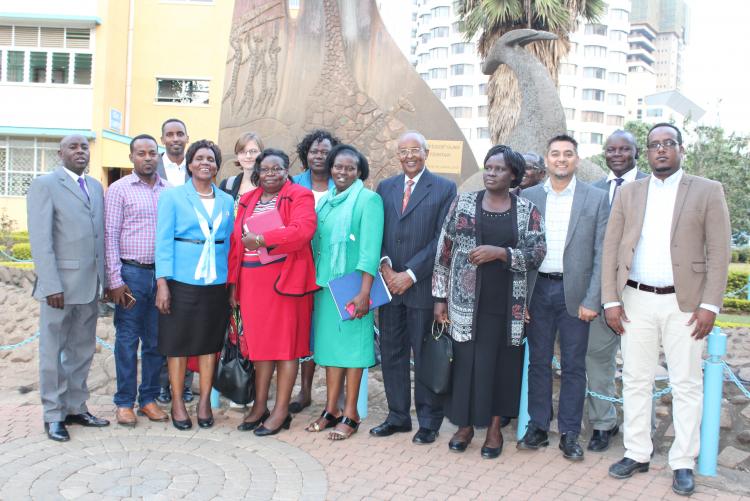In recognition of the increased demand for and professionalization of education responses in and after emergencies, the University of Nairobi (UoN) in Kenya and the International Rescue Committee (IRC) are partnering to establish accredited Master’s and certificate programs for Education in Emergencies within the UoN’s School of Education. This unique collaboration will seek to develop human resource capacity among enrolled students and education practitioners working in East Africa in order to prepare them to provide vital education programming in emergency and post-crisis settings in developing countries. This NGO-University partnership is a 3-year project commencing in 2009.
Combining coursework, field work and research, the Education in Emergencies program will teach students and practitioners the essential skills and competencies needed to work in the education sector and in mitigating, responding to and rebuilding after complex emergencies. IRC will also support research endeavors conducted by UoN education professors and students, help document practice and policy innovations in the education in emergencies field, and share findings widely with the larger education in emergencies community. Throughout this process of capacity building, program development, and research, the University of Nairobi professors and students will be connected with global education in emergencies actors and networks. These strategic linkages will ensure that program design, course curricula, research, and experiential education opportunities draw upon and complement good practices in place within the larger field of education in emergencies.
Our shared vision is that students studying and practitioners participating in the UoN’s Education in Emergencies program will be better equipped to work in the field of education in emergencies in the East Africa region and that the University of Nairobi will become a regional hub of expertise, learning, and training for future generations of leaders in the field.
Goals:
The overarching goals for this project are twofold and include the following: To develop and enhance capacity among students, professors and education practitioners studying, researching, and working in the field of education in emergencies (EiE) in East Africa
To establish the University of Nairobi as a Center of Excellence for education in emergencies (EiE) in the East Africa region and beyond

